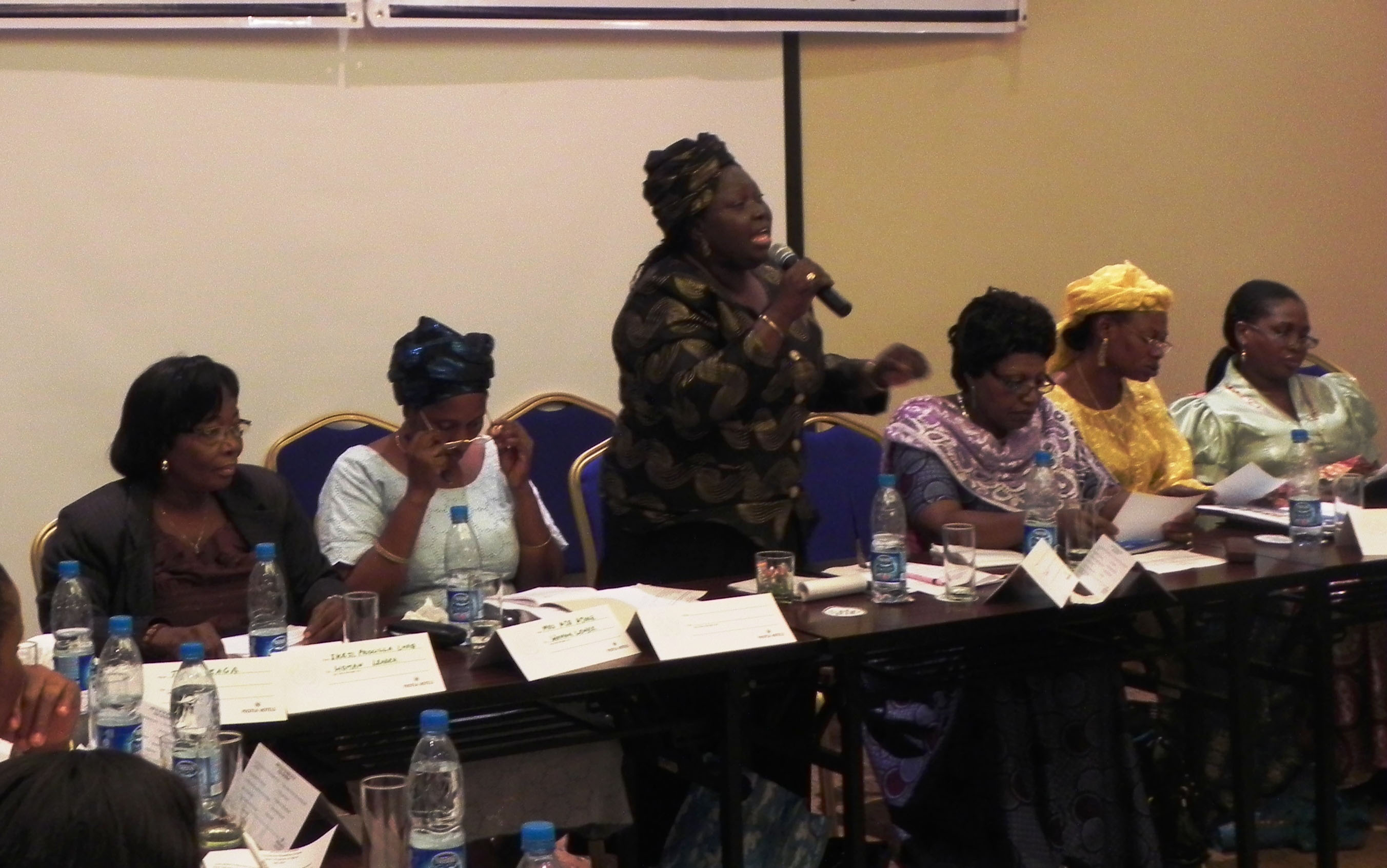Workshops in Nigeria Energize Women to Participate in Political Process
 IRI completed a series of workshops entitled, The Importance of the 2011 Elections: Women’s Political Participation in Perspective, for women leaders in Nigeria, drawing interested and energized women from political parties and civil society. Sessions were held in Abuja, Kano and Lagos, with the goal of evaluating the opportunities and challenges facing women’s political participation and developing a strategic plan to increase the role of women in the upcoming 2011 presidential and national assembly elections.
IRI completed a series of workshops entitled, The Importance of the 2011 Elections: Women’s Political Participation in Perspective, for women leaders in Nigeria, drawing interested and energized women from political parties and civil society. Sessions were held in Abuja, Kano and Lagos, with the goal of evaluating the opportunities and challenges facing women’s political participation and developing a strategic plan to increase the role of women in the upcoming 2011 presidential and national assembly elections.
Mary Pieschek, a long-time IRI trainer, led the workshops, helping women develop basic skills in strategic planning and advocacy. The majority of the women said that they had never been offered the opportunity to learn strategic planning techniques prior to these sessions. Women in all the cities proved to be energetic participants and shared their desire to use strategic planning concepts not only for political development, but also in their own lives. Each session focused on encouraging women to speak out on an individual level, and how to incorporate the strategic planning process to engage people in the political process.
Hajiya Inna Adamu Ciroma, women’s leader of Nigeria’s largest political party, the People’s Democratic Party, spoke to attendees and gave a critique of her political party’s candidate selection process. Nigeria does not have an effective quota system that sets mandatory places for women on party ballots, which means that few women are selected as candidates for political office. Ciroma stressed the need for political education for Nigerian women, as well as moving towards greater gender equality on local and national ballots.
While in Kano, a key political and economic center of the nation’s northern region, IRI representatives met with party leaders and encouraged them to send women from their parties to the Kano workshop. Most said they were open to having more women engaged in party work and leadership, and as one of the male party leaders put it, “Educate a man and you educate one person. Educate a woman, and you educate a nation.”
Top